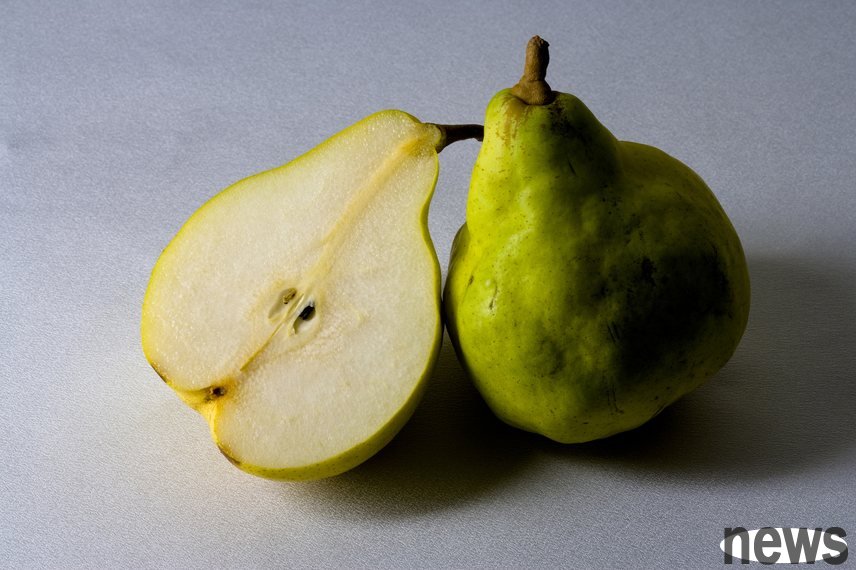Sweet, juicy, crisp and refreshing, pears have been loved by people since ancient times. Whether sliced into salads, stewed into desserts, or eaten straight from the tree, pears' natural sweetness, versatility, and mild flavor make them an ide...

Sweet, juicy, crisp and refreshing, pears have been loved by people since ancient times. Whether sliced into salads, stewed into desserts, or eaten straight from the tree, pears' natural sweetness, versatility, and mild flavor make them an ideal fruit for both sweet and savory tastes. “People love pears because they are versatile, have a mild flavor and can be paired with desserts or incorporated into savory dishes,” says Caroline Susie, a registered dietitian and national spokesperson for the Academy of Nutrition and Dietetics.
According to USA Today, pears are not only delicious, but also have excellent nutritional value. They are often considered to have multiple benefits for the heart, digestive system and metabolism. However, this does not mean that it can be consumed in large quantities without restrictions.
The following will introduce the basic information and health benefits of pears, as well as which groups need special attention when consuming them.
What is a pear?Pear is a fleshy stone fruit belonging to the Rosaceae plant family, which also includes apples, peaches, plums, cherries and other fruits. "There are many varieties of pears, some with a crisp and refreshing taste, while others are soft and delicate," explains Lisa Young, a registered dietitian, adjunct professor of nutrition at New York University, and author of "Finally Full, Finally Thin." Common varieties include Bartlett, Anjou, Bosc, Concorde, Comice, and Asian pears.
Pear is native to temperate regions such as Europe and Asia, and has been cultivated thousands of years ago. Over time, pears spread throughout the world and gradually became one of the most beloved fruits. According to the World Population Review, the main pear-producing countries currently include Austria, New Zealand, Switzerland, South Africa and the United States. In the United States, Washington State, Oregon and California are the three main producing areas.
The main production season of pears is from late summer to autumn every year, and the season with the strongest flavor falls from August to November. In addition, pears are often available year-round in frozen, canned or dried form.
Are pears good for health? Can dogs eat pears?Pears are packed with health benefits no matter when they are eaten. Lisa Young points out, "Pear is one of the fruits with the highest fiber content." A medium-sized pear contains about 6 grams of dietary fiber, which is nearly a quarter of the recommended daily intake. "Fiber helps promote intestinal motility and can also promote satiety," she adds.
In addition, a medium-sized pear only contains about 100 calories and almost no fat, making it an ideal choice for weight maintenance and healthy eating.
High fiber also helps stabilize blood sugar, improve cholesterol levels and improve heart health. The potassium in pears is also beneficial to cardiovascular function and helps maintain normal blood pressure.
Pear also contains vitamin C and vitamin K, which help immune function, collagen production and wound healing. Susie added, "Pear (especially the peel) contains antioxidant compounds such as phenols and flavonoids, which can slow down inflammation and may help prevent oxidative stress and vascular damage." These effects are also consistent with observational research, which shows that eating more pears is associated with a lower risk of type 2 diabetes and cardiovascular disease.
As for whether dogs can eat pears? The answer is yes. "Fresh pear slices (with seeds and core removed) can be used as healthy pet snacks," Young said. However, she reminded that you should avoid feeding pears canned in syrup and be sure to remove the seeds, because "pear seeds contain trace amounts of cyanide and are potentially harmful to pets."
Can you eat pears every day?For most healthy adults, eating one pear a day is safe and beneficial. However, there are still a few things to note.
Pears contain natural fructose and sorbitol (a sugar alcohol), and are high in fiber. Young reminds, “This may cause some people to experience discomfort such as flatulence, gas, or diarrhea.” For people with sensitive stomachs or those suffering from irritable bowel syndrome (IBS), moderate intake is recommended.
In addition, certain health conditions also need attention. For example, people with gastroesophageal reflux (GERD) problems may be uncomfortable with overripe pears, despite their relatively low acidity. People taking potassium-sparing diuretics or ACE inhibitors should also control their total potassium intake. Susie pointed out, "Although pears only contain trace amounts of vitamin K and are unlikely to cause major interference with anticoagulant drugs such as warfarin, it is still recommended to maintain a consistent intake of vitamin K."
Overall, as long as you consider your personal health and eat in moderation, "pears are a safe and nutritious fruit that is suitable as a daily snack." Young said.